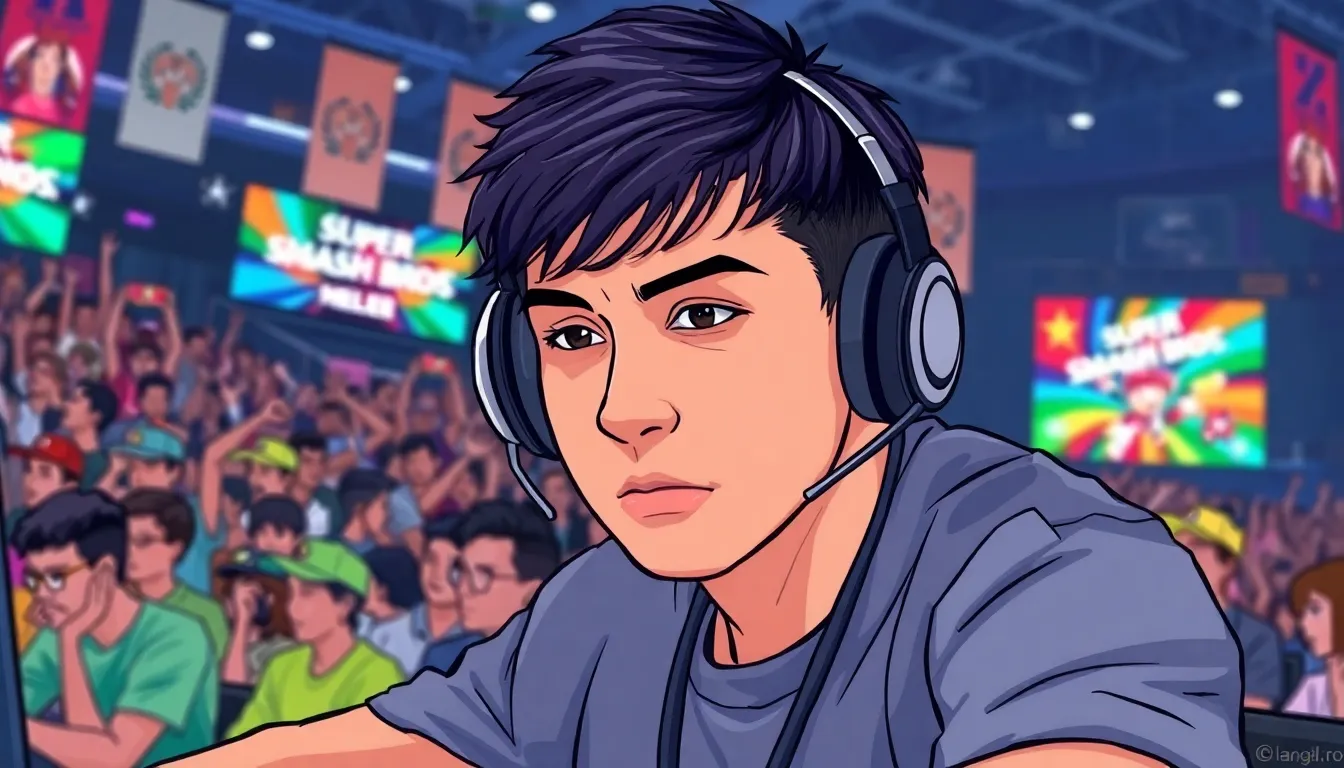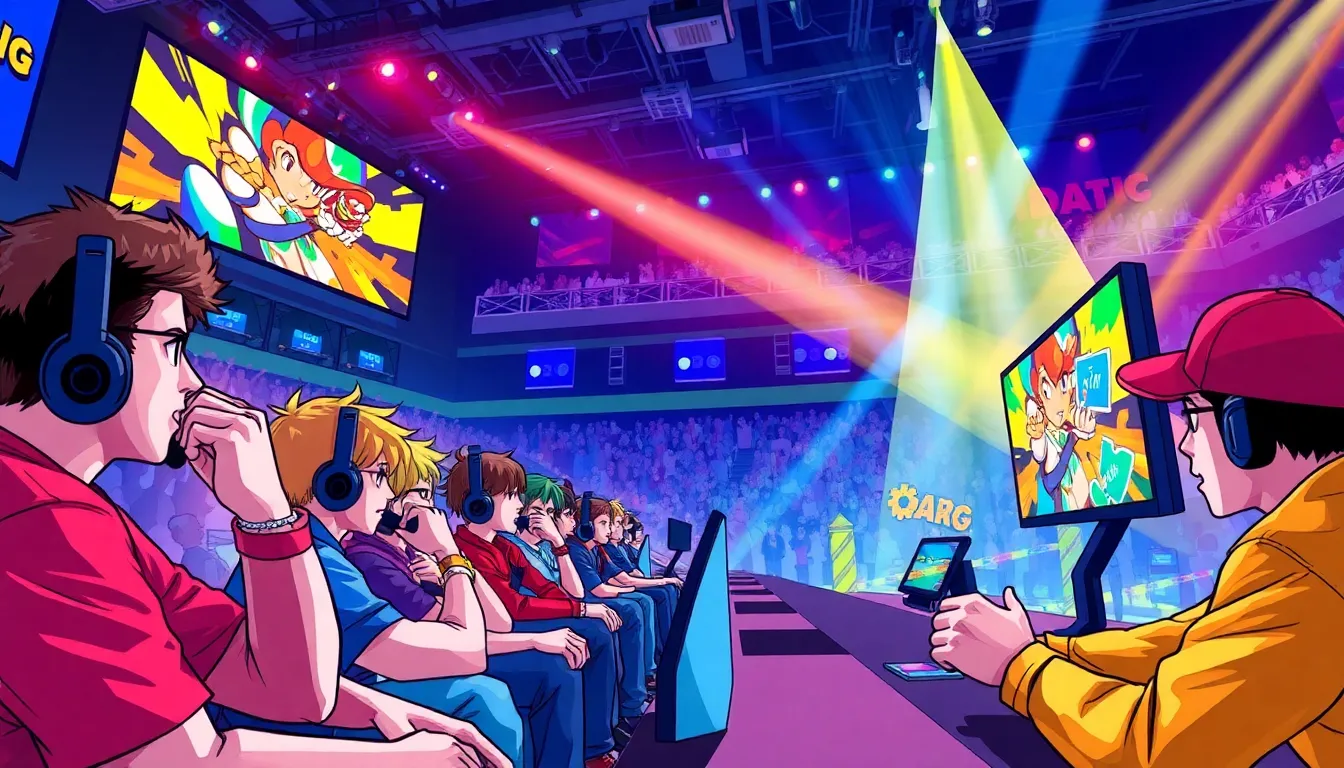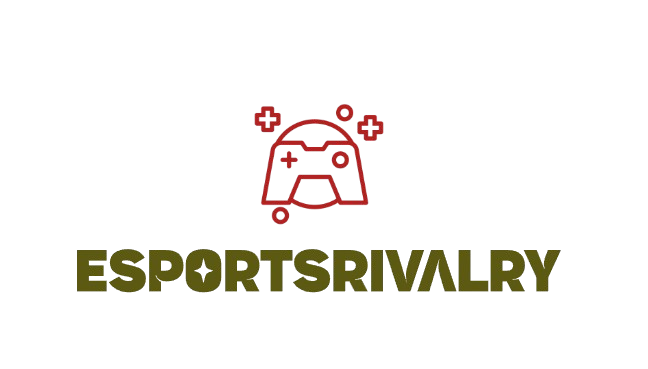
Melee Tournaments: Experience the Thrill of Competition and Glory in Esports
Melee tournaments are where legends are born and dreams get smashed—literally. Picture this: players gripping their controllers like they’re holding the last slice of pizza at a party, sweat beading on their foreheads as they strategize their next move. It’s not just about winning; it’s about glory, bragging rights, and maybe even a trophy that’s shinier than your average kitchen appliance.
Melee Tournaments
Melee tournaments create an energetic environment where players showcase skills and passion. These contests attract competitors eager to prove their abilities and gain recognition.
History of Melee Tournaments
Melee tournaments began in the early 2000s. Initial events focused on local gatherings, allowing players to connect and compete. As technology advanced, online platforms emerged, facilitating broader participation. The first major tournament, Super Smash Bros. Melee, garnered attention and set the stage for future competitions. Players quickly recognized the potential for larger scale events, paving the way for organized leagues and international competitions.
Evolution of Competitive Play
Competitive play in melee tournaments transformed significantly over the years. Initially, players relied on local meetups to hone their skills. With time, new strategies and techniques emerged, pushing the competitive scene forward. Streaming platforms made matches accessible, increasing visibility for skilled players. Community-driven content contributed to player growth and awareness. Today, the focus extends beyond gameplay to include community engagement and professional sponsorships, solidifying melee tournaments as essential components of the esports landscape.
Popular Games in Melee Tournaments

Melee tournaments feature various games that attract competitive players and enthusiasts. Two of the most popular titles in this genre include Super Smash Bros. Melee and Rivals of Aether.
Super Smash Bros. Melee
Super Smash Bros. Melee stands as a cornerstone of the melee tournament scene. Released in 2001, it quickly gained a following due to its dynamic gameplay and diverse character roster. Players often demonstrate their unique skills with characters like Fox, Marth, and Sheik, showcasing advanced techniques like wave dashing and L-canceling. Competitive events revolve around this game, highlighting intense matches that captivate audiences. Tournaments regularly draw thousands of spectators, with events like Evo showcasing its enduring popularity. The ranked ladder system has further bolstered its competitive community.
Rivals of Aether
Rivals of Aether offers an exciting alternative to traditional melee games. Launched in 2015, it introduces a cast of original characters inspired by classic fighting games. Each character features distinct mechanics and playstyles, promoting creativity in gameplay. Players engage in competitive matches that emphasize strategy, positioning, and advanced movement techniques. Community tournaments frequently facilitate engagement and growth, while its online ecosystem connects players globally. The game’s frequent updates and community-driven content enhance its appeal, making Rivals of Aether a notable contender in melee tournaments.
Key Components of Melee Tournaments
Melee tournaments thrive on several essential components that ensure smooth operations and an engaging experience for everyone involved.
Tournament Formats
Players encounter various tournament formats, each offering unique structures. Single elimination tournaments allow quick progression, where a single loss eliminates a competitor. Double elimination formats provide players a safety net, allowing one loss before elimination occurs. Round-robin ensures every participant competes against each other, fostering skill assessment and interaction among competitors. Additionally, some tournaments use team formats, where participants form groups, enhancing collaboration and strategy. These structures cater to different preferences, ultimately enriching the competitive landscape.
Rules and Regulations
Adhering to strict rules and regulations is crucial in melee tournaments. Standardized guidelines govern character selection, stage legality, and match procedures. Each tournament sets specific character bans to maintain a balanced environment. Stage selection restrictions prevent mismatches that could favor particular characters. Referees play key roles in enforcing these rules, ensuring fair play. Disputes may arise, prompting established protocols for resolution. Clarity in regulation helps maintain integrity and trust within the competitive community.
Notable Melee Tournaments
Melee tournaments showcase intense competition and community engagement, contributing to the vibrant esports culture.
The Big House
The Big House ranks among the most prestigious Super Smash Bros. Melee tournaments. Every year, it attracts top-tier players and enthusiastic fans from around the world. Organizers focus on delivering a world-class experience, featuring high-quality streams and well-structured brackets. Players often vying for significant prize pools elevate both skill and excitement. Moreover, The Big House has a rich history of memorable matches that become legendary moments in the community, fostering a spirit of rivalry.
Genesis
Genesis stands out as another landmark event in the melee tournament scene. Known for its competitive atmosphere, it typically draws elite players eager to prove their skill. The tournament consistently features impressive prize pools, ensuring high stakes for participants. Genesis also emphasizes inclusivity by accommodating various skill levels, making it accessible to newcomers. Notably, iconic matches from Genesis have left a lasting impact on the community, showcasing the evolution of strategies and talent in competitive play.
Conclusion
Melee tournaments continue to thrive as a cornerstone of the competitive gaming landscape. The passion and dedication of players create an electric atmosphere that draws in fans and participants alike. With a rich history and a commitment to fair play and community engagement, these events foster growth and innovation in gameplay.
As the scene evolves, new strategies and techniques emerge, ensuring that players remain challenged and engaged. The excitement surrounding tournaments like The Big House and Genesis highlights the ongoing appeal of melee competitions. As the community grows and adapts, melee tournaments will undoubtedly remain a vital part of the esports ecosystem for years to come.
